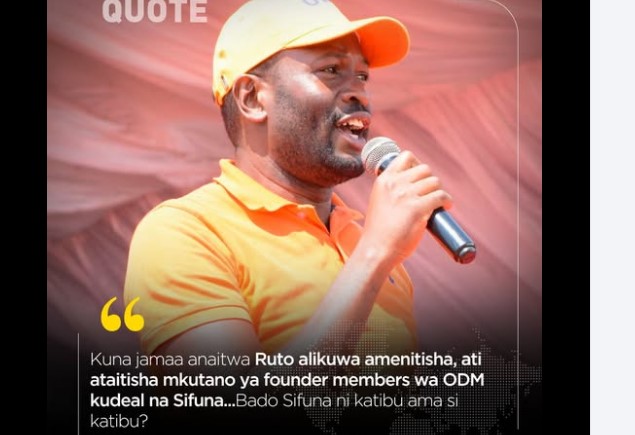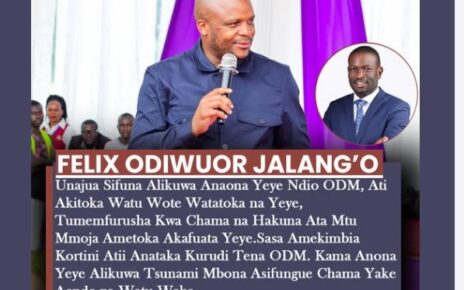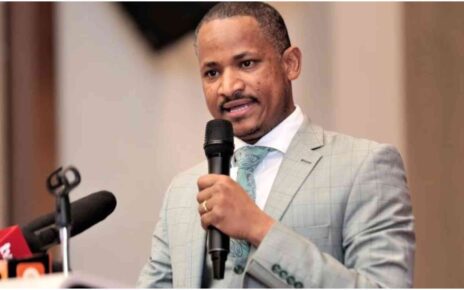Nairobi Senator Edwin Sifuna has once again ignited political debate after boldly recounting an incident in which he claims President William Ruto attempted to intimidate him by threatening to convene a meeting of ODM’s “founder members” to deal with him. In typical Sifuna fashion—sharp, fearless, and unapologetically direct—he posed a rhetorical question that captured national attention: “Bado Sifuna ni katibu ama si katibu?”
This single question carries layers of defiance, political irony, and confidence in his position within ODM. Sifuna’s message is clear: despite the threats, despite the political games, and despite attempts to undermine him, he still holds the powerful position of Secretary-General in Kenya’s largest opposition party.
Sifuna’s revelation exposes the broader strategic contest between Kenya Kwanza and the ODM/Azimio coalition. It hints at attempts—quiet or overt—to destabilize opposition structures by invoking historical authority, such as referencing ODM’s “founder members.” By bringing this into the public arena, Sifuna paints a picture of political intimidation tactics that, in his view, have no place in a functioning democracy.
His tone also reflects the political culture that has shaped him: a generation of leaders unwilling to be cowed by threats, a generation determined to defend their political institutions, and a generation committed to resisting attempts to rewrite party history for convenience.
Sifuna’s rhetorical question, “Bado Sifuna ni katibu ama si katibu?”, functions almost like a punchline—confident, provocative, and meant to embarrass those who doubted him. It is a proclamation of survival. He is reminding critics, adversaries, and political rivals that he remains firmly in control of ODM’s secretariat, despite external pressure.
This episode also highlights the fragility and fluidity of Kenya’s political alliances. The fact that a sitting President is alleged to have invoked ODM’s founder structure shows how intertwined Kenyan political histories are, and how past associations continue to shape present battles. It also demonstrates how parties must guard their internal mechanisms to ensure they are not manipulated by external forces seeking political advantage.
Sifuna, who has built a reputation as one of the opposition’s strongest communicators, uses this story to reinforce his narrative as a steadfast defender of ODM. His confidence signals that he believes his mandate comes from the party membership and leadership—not from the fear of individuals who wield state power.
In the end, Sifuna’s message is both a political statement and a personal declaration: threats will not silence him. If anything, they only strengthen his resolve. And as long as he remains ODM Secretary-General, he seems ready for every confrontation, every political test, and every attempt to undermine his authority.



